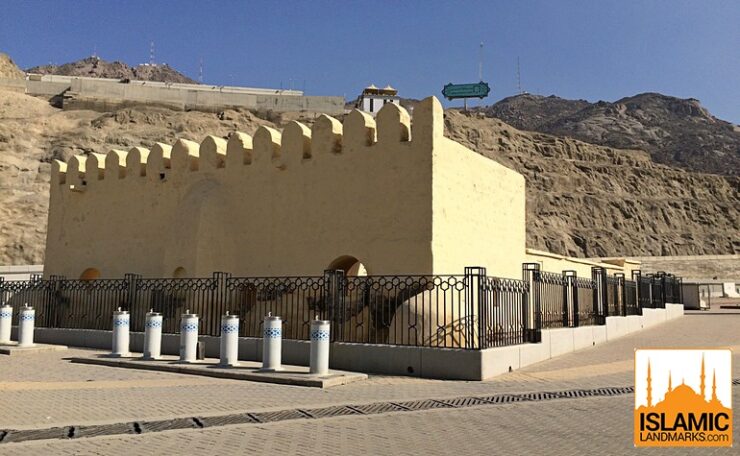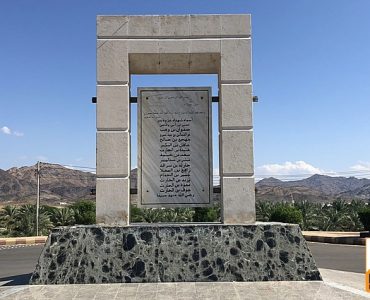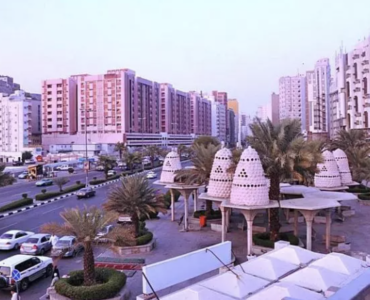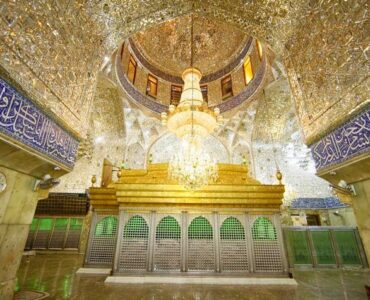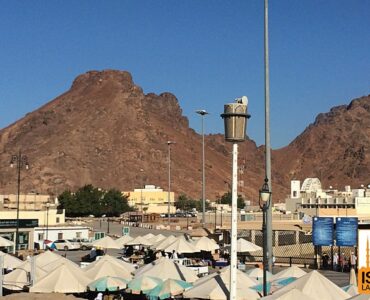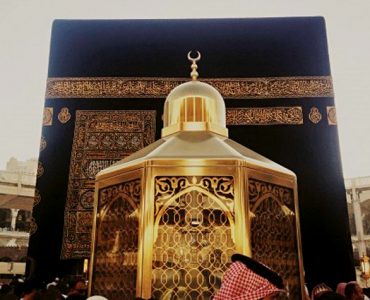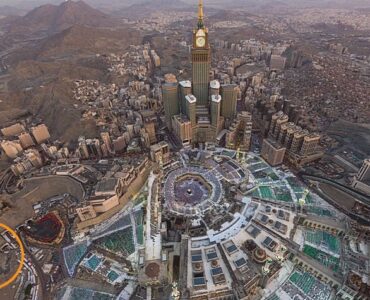This masjid, close to Mina, commemorates the spot where the Ansar of Madinah pledged their allegiance to the Prophet (ﷺ) in the year 621 CE. The group included leaders of the Aws and Khazraj tribes of Madinah and were twelve in number. The second such pledge called the second Aqabah pledge (Bay’ah Aqaba Thaaniya) took place the following year, the thirteenth year after the Prophet (ﷺ) proclaimed his Prophethood.
- The Prophet (ﷺ) would make contact with various Arab tribes that came into Makkah for their festivals, trade fairs or pilgrimages and preach the truth of Islam to them. He would take the opportunity to call them towards worshipping only Allah (ﷻ) and to believing in his Prophethood. His uncles Abu Jahl and Abu Lahab would often follow him, dissuading people from listening to his message. To avoid them, he would come out in the darkness of night to contact the caravans staying at a distance of several miles from the Ka’bah.
- One night, the Prophet (ﷺ) heard some people talking at Aqabah. He came close and saw that they were six in number who had come from Yathrib (later to be known as Madinah) to perform pilgrimage at the Ka’bah. The Prophet (ﷺ) preached Islam to them and recited some verses of the Quran. They listened in awe and embraced Islam on the spot. They were neighbours of the Jews in Yathrib and had heard them mention of the coming of a great Prophet in the near future and about his dominance over all others. The six new Muslims promised that they would invite their people to Islam upon returning to Yathrib and that they would meet the Prophet (ﷺ) again during the next pilgrimage.
- The next year, five of the six returned to meet the Prophet (ﷺ) again at Aqabah and they brought with them another seven converts. These twelve persons pledged their allegiance to Islam at the hand of the Prophet (ﷺ) and this became known as the ‘First pledge of Aqabah’. They pledged that they would not associate partners with Allah, commit theft, fornicate, kill their children, defame others, nor disobey the Prophet (ﷺ) when he instructed them to do good.
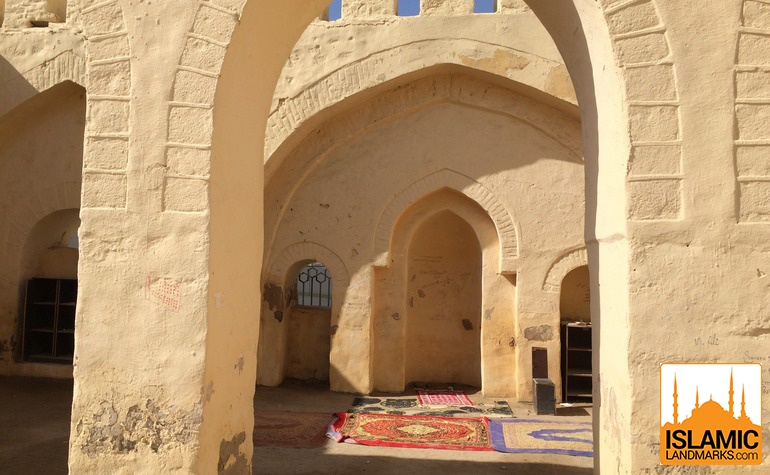

- The Prophet (ﷺ) deputed Mus’ab bin Umair to go with them to teach Islam and preach to others. He remained busy all the time in teaching the Quran and other Islamic practices to the people. He stayed with As’ad bin Zararah (رضي الله عنه) and was known as Muqraee (the teacher). During this period many people from Yathrib embraced Islam.
- The following year Mus’ab bin Umair (رضي الله عنه) set out from Yathrib for Makkah with a caravan of 72 men and two women which comprised of Muslims and pagans. The Muslims wanted to meet the Prophet (ﷺ) and to invite him to come to Yathrib. They had been dismayed at the harassment, abuse and fear that overshadowed the Prophet (ﷺ) and the other Muslims and had resolved to offer them their loyal protection if they moved there. A secret meeting with the Prophet (ﷺ) was arranged one late night at Aqabah.
- The Prophet (ﷺ) met them accompanied by his uncle Abbas who at that point was not a Muslim. He talked to the group, recited the Quran, prayed to Allah and encouraged people to embrace Islam. Then he said, “I ask for your allegiance on the basis that you protect me as you would protect your wives and children.” They pledged their allegiance to him and this became known as the ‘Second pledge of Aqabah’. They asked him to promise that he would not leave them and return to his people. The Prophet (ﷺ) gave his promise, “I am from you and you are from me. I will fight those you fight and will be at peace with those with whom you are at peace.” Twelve men were then chosen to be responsible for the affairs of the community, these included Sa’d bin Ubadah, Abdullah bin Rawahah and Ubadah bin Samit (رضي الله عنهم).
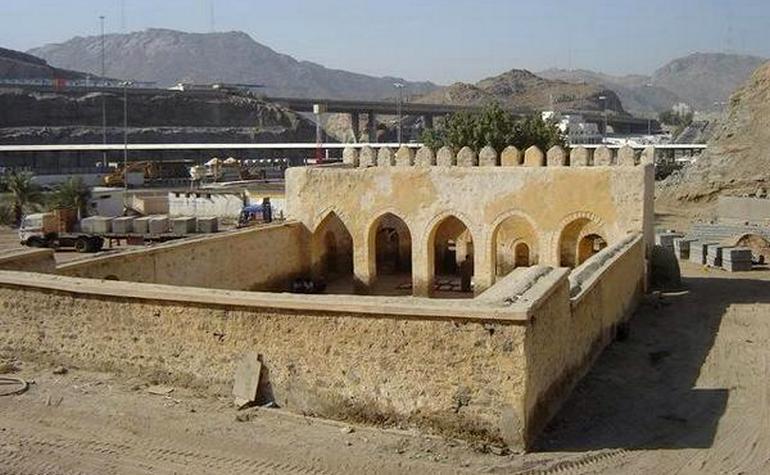

- Shaitan was watching and listening from the top of Aqabah, and when he could contain himself no longer he cried out in the loudest voice possible and spoke the name Mudhammam (Reprobate). The Prophet (ﷺ) knew who it was and answered him saying, “O enemy of Allah. I will give thee no respite.”
- The masjid was built by Abu Jafar al-Mansour in 144 AH. It has been renovated several times with the last one by Sultan Abdul Majeed Khan al-Othmani in 1250 AH.
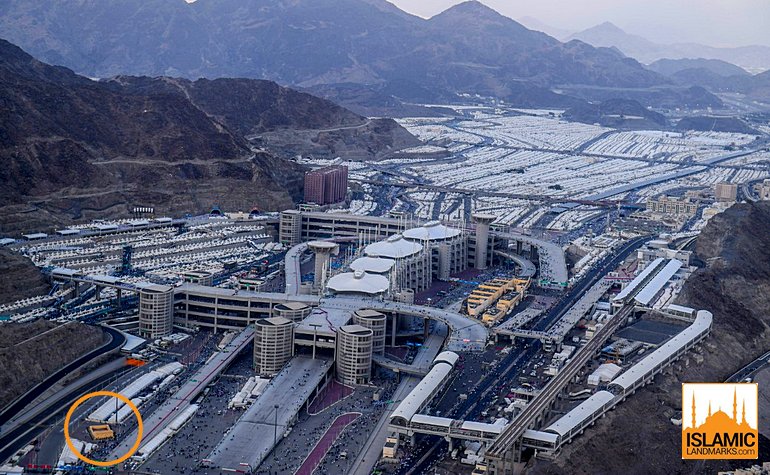

References: When the Moon Split – Shaikh Safiur-Rahman Mubarakpuri, Muhammad – Martin Lings, Fazail-e-Aamal – Sheikh Zakariyya Kandhalvi, The History of Islam – Akbar Shah Najeebabadi

